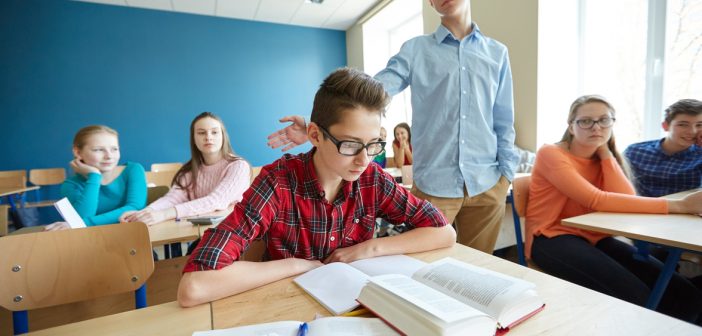We are all very familiar with the term “Mean Girls” but it needs to be widely acknowledged that boys can be mean too. Really mean.
Boys are traditionally associated with physical aggression, however a more insidious form of bullying that can have a huge impact on boys is relational aggression.
What is relational aggression?
Relational aggression is the term used to describe non-physical aggressive behaviour that is designed to intentionally hurt someone. Spreading rumours, teasing, exclusion, manipulation and coercion are all examples of relational aggression. These can happen in person or online. These are all behaviours usually associated with mean girls and most studies on bullying identify a higher prevalence of relational aggression amongst girls than boys.
However, a 2016 study found that boys actually experience relational aggression to a similar degree as girls, however it does not seem to be recognised as much by people in positions of authority such as parents and teachers.
In fact, in the study, teachers were quoted as saying stereotypical things such as:
- “Boys resolve conflict then and there. They are more peaceful.”
- “Boys are simpler. Girls do meaner things.”
The study also found that the strong focus on girl conflict was due to its dramatic nature, whereas relational aggression between boys was more inconspicuous, hence flying under the radar.

What are the effects of relational aggression?
The consequences of being a victim of relational aggression can be serious. It can lead to peer rejection and social isolation, resulting in various mental health and school related problems such as:
- Low self-esteem
- Poor social skills
- Depression
- Behaviour problems
- School Refusal
- Poor academic performance
- Self harm
- Suicidal ideation
Physiological problems such as abdominal pain, headaches and toileting issues can also arise and these symptoms should be a red flag to parents when there are no identifiable underlying medical causes.
How can we help boys deal with relational aggression?
Stay connected. Getting boys to talk about what is happening within their peer groups can be tricky, particularly if they are experiencing relational aggression within a friendship. They may feel they are betraying their friendship group or are worried they will be seen as weak for being distressed by their friends’ behaviour towards them. They also may feel shame at being bullied. It can be easy for parents to assume that if their child hasn’t reported any issues that everything is ok.
Regularly checking in about how friendships are going and what’s happening in the playground will provide your child with the opportunity to talk about any negative things that may be happening. Let them know you are always there to listen, empathize with their difficulties and help them get further support if necessary.
Make it normal to talk about feelings. Boys may feel pressure to hide their feelings or “tough it out”, leading to internalisation of negative emotions. This can result in poor mental health outcomes. Make talking about positive and negative emotions a normal part of your interaction with your child and lead by example. “My boss thanked me for my hard work today and it made me feel really proud.” “The shops were very busy today and I forgot my list, it was so frustrating.” Encourage your child to do the same, this way they will become more self-aware and feel more comfortable naming and talking about their emotions.
Teach them to be assertive not aggressive. Responding to relational aggression with more relational aggression, or even physical aggression, is not the answer. By teaching your son to stand up for themselves, or other people, without being aggressive, they will feel more self-confident and be able to cope better with negative interactions. Talk to them about what relational aggression is so they can identify this behaviour and deal with it constructively.
Find other interests. Peer friendships are a key element in the lives of young men and school is just one place to make friendships. Participating in extra-curricular activities can help your child make friends with likeminded people outside the schoolyard, which can in turn be a protective factor for any negative interactions they have elsewhere.
Keep an eye online. Relational aggression doesn’t just happen in the playground and social media is rife with it. Talk to your child about cyber bullying and if necessary put measures in place to limit their exposure to negative interactions online.
Helping your child deal with any type of negative peer behaviour is difficult. You can read some more great tips on how to deal with mean girl behaviour that can also be helpful for boys.


1 Comment
Pingback: Teaching Your Child To Grow From Hurtful Experiences - School Mum